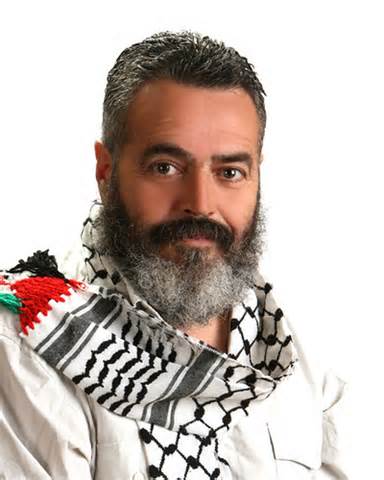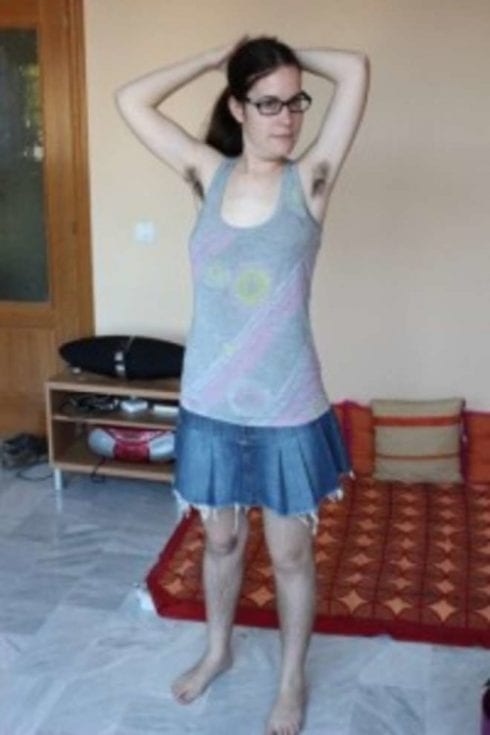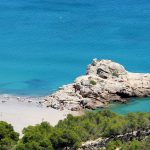IT is all set to be a long hot summer of discontent in Andalucia with the austerity measures continuing to bite and the recession refusing to abate.
But for the leader of one small village of Sevilla province it is about to get even hotter.
For the Marching Season is about to begin for the hard left gang of syndicalists, anarchists and communists who support Spain’s longest-running mayor Juan Manuel Sanchez Gordillo, in Marinaleda.
Despite being the subject of numerous death threats, countless arrests and two assassination attempts (more of which later), he is about to take on the establishment yet again when he launches another summer of direct action that could include ‘supermarket raids’, sit ins and the seizure of yet more private land.
Frequently arrested for his endeavours – and a few years ago having his arm broken by an overzealous policeman during one protest – the Robin Hood figure is fully prepared to spend weeks ‘on the road’ and even time in prison in order to highlight the plight of the Andalucian working man.
“I am already facing up to 10 years while my town hall collectively faces 53 years from last year’s actions,” the former history teacher told me this week.
Speaking in his office below a photo of Che Guevara and a Republican flag, he insists: “But I will not be cowed. The authorities have misinterpreted our actions and are going about it the wrong way. I very much doubt they can get me put inside.”
He is referring to the series of land seizures and in particular a supermarket raid on a Mercadona last August. During the fracas in nearby Ecija, 100 supporters of his locally-formed trade union SAT stole a dozen supermarket trolleys of food for the ‘poor and needy’.
“It was merely a symbolic gesture to highlight the appalling waste of food supermarkets throw out and the situation with sell-by dates,” he explains.
While staying tight-lipped about the exact nature of the forthcoming protests, they are unlikely to begin until after the annual Marinaleda feria this weekend, at which the 62-year-old leader famously works behind a bar serving drinks in classic egalitarian fashion.
Citing Gandhi, anarchist leader Proudhon and surprisingly Jesus Christ as heroes, he promises though that it will be an inspirational and action-packed summer.
His passion comes from helping the landless labourers who have traditionally inhabited many parts of Andalucia – Spain’s poorest region – and who comprise the vast majority of his village of 2600 inhabitants.
“There are far too many people going hungry and far too many people without work. The situation in Spain is not dissimilar to South America in terms of land ownership. And under the current government it is getting worse with the massive latifundia landowners owning the vast majority of land, much of it which is hardly used.”
It was this glaring paradox that spurred his village into radical and highly successful action back in 1980 when a year after getting into power they seized a huge, largely unused estate from a rich landowner the Duque de Infantado.
Through a series of hunger strikes, pickets and sit ins they had soon got water rights for the 1200 hectare estate and were planting a series of crops including cotton, artichokes and olive trees.
And it is this much-vaunted co-operative that should be envied and serve as a shining light for towns and cities across the world struggling against the global recession.
Called El Humoso, it is located eight kilometres outside of the village and is a crucial source of work for many residents, who earn 47 euros a day as part of 15 day ‘campaigns’ picking, planting or preparing or weeding the land for cultivation.
I talked to a number of men and women who were weeding land around a cotton crop during 35 degree heat last week.
Back-breaking work, they were nonetheless mostly happy to be working at a time when over 38% of Andalucians are out of work.
“Once you get used to it, it is fine,” says mother-of-one Amanda Saavedra, 30. “And with so many people unemployed it is simply great to have work.”
It took 12 years of political fighting to finally wrestle the right to cultivate the land, which is now technically administered by the Junta and leased to the village.
It is undoubtedly the mayor’s finest achievement in a reign that has stretched for 33 years, by far the longest in Spain.
Since the acquisition of the land, it has been gradually transformed from a barren, dry wasteland to an irrigated and fertile stretch that can grow a range of vegetables and fruit, all allegedly 100% organic.
All the revenue made by selling the produce is re-invested to buy new tractors and tools and increase productivity and the workforce yet further.
The land is apparently being well used today and creating plenty of employment, with the town registering unemployment figures of as little as 7%, according to Gordillo and 20% according to the local branch of the PSOE socialist party, which is still well below average.
As well as rows of tomatoes and peppers, there are large plantations of artichokes and green beans and the aforementioned cotton, which is a good cash crop.
The town has recently created its own brand Humar and invested in a canning factory, where over 100 women work during the harvest season. Produce sells to a number of supermarket chains and even to Germany under a current trial, while the estate’s olive oil currently sells around 10% of its two million litres produced each year to Venezuela.
“Gordillo was the inspiration behind us finally being given this land,” explains worker Antonio Gomes.
“Every day for two months he would lead us on a peaceful march up here to protest for the right to be granted the land, which finally came in 1991. Overall it took many years but he never stopped fighting for what he thought was rightfully ours.”
Testament to this is the entrance with a big sign ‘Tierra Utopia’ and the long slogan that reads: “This farm belongs to the unemployed day labourers of Marinaleda.”
Back in the village meanwhile, the locals were getting prepared for their annual feria with one of the frequently called ‘red Sundays’.
A now popular day, hundreds of volunteers were out in force cleaning the streets, painting and repairing things entirely unpaid and with, mostly, smiles on their faces.
Called out via a loudspeaker around 9am families and even teenagers with tattoos are prepared to go out to help.
This is the amazing community spirit that has been instilled in the town, where over 80% still vote for their mayor, who represents the IU party, despite insisting his politics are anything, but classic communism, with an equal dash of ‘deep Christianity, anarchism and syndicalism’.
Unlike any other Andalucian village, its walls are lined with graffiti and murals.
They depict the destruction of tanks and weaponry, the binning of Nazi symbols and a column of workers marching through the fields. Others champion Spain’s 15M uprising or the virtues of turning off the television, while Che Guevara adorns the sports hall.
With its street names named after global revolutionaries including Salvador Allende and Pablo Neruda, it has often been described as being a ‘left wing Utopia’, and there has certainly been an admirable attempt to do things differently.
Radical measures include getting rid of the local police force to save money (by all accounts around 48,000 euros a year for four policemen) and subsidizing housing to the tune of just 15 euros a month per family.
On top of this residents pay just 3 euros to use the village pool for the entire summer period, while the local creche is just 15 euros a month per child, including lunch.
“And then we only have to pay 60 euros a year for our rates (IBI),” explains local expat resident Eddie Norton, who retired to the town from Essex nearly a decade ago. “We didn’t know anything about Gordillo when we moved here, but we couldn’t believe how well looked after the place was and what amazing facilities it has,” he continues.
He is certainly right. The village not only counts one of the most charming flower-filled parks in Sevilla province, but it has no fewer than three big football pitches – one indoor – at least four tennis courts, three paddle courts and two Olympic-sized pools.
But describing it as a ‘communist utopia’ does not go down well with everyone.
A number of locals grumble that unemployment is higher than Gordillo makes out, while others complain if you don’t vote for him and support his campaigns you cannot get work at the communal farm, a claim he denies.
Most of all, some people criticize the lack of real democracy in the town, with town council meetings rarely being called (police are currently investigating this claim) and the opposition PSOE party insisting Gordillo’s project has been ‘a failure’.
But, by his own admittance Gordillo agrees there is still work to be done.
“We are on the right road and trying,” he insists. “We can always get better and improve things and I think the proof is in the fact that only two out of the 11 councillors of the town are not in the IU, two less than four years ago.”
Ultimately though, is it all worth it with all the court cases, not to mention death threats?
The latest came threat came last summer and followed two attempts on his life, the first when a bullet was fired through his car window by a man from nearby El Rubio, missing him by inches as he drove around the town. ‘He got just three months in jail,’ claims Gordillo.
The other was in 1997 when an unemployed Guardia Civil threatened him with a gun outside his house. “It was scary and, of course, I worry for my family, but this is a project I truly believe in and it isn’t about to stop yet.”
With these words off troops Juan Manuel Sanchez Gordillo, easily one of Spain’s most inspiring and intriguing men.
For right or for wrong, he is somehow making a difference.






Dream Team: Baltazor Garzon for Prime Minister, Juan Gordillo for Chancellor of the Exchequer. Vote now!
Bring on the Revolution!
Not revolution, evolution…